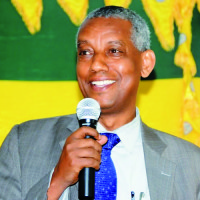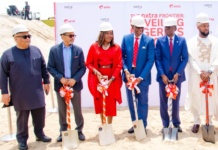With support from the World Bank Group, eight African governments are collaborating with the Republic of Korea to strengthen human resources and build skills locally in the applied sciences, engineering and technology.

Senior officials from the Korea Development Institute are in Addis Ababa this week to discuss proposals for transformation in priority sectors with representatives from Cameroon, the Democratic Republic of Congo, Ethiopia, Kenya, Rwanda, Senegal, Tanzania, and Uganda. The high-level conference is hosted by the Government of Ethiopia and the World Bank Group.
“Ethiopia is pleased to host this conference as we think there is a lot to be gained from mutual partnership with new partners and investors such as Korea,” said Kabba Urgessa, State Minister for Higher Education, Ethiopia. “We particularly appreciate that this knowledge-sharing is now taking place in a structured and efficient way, maximizing the benefits for a number of countries.”
“The Republic of Korea is keenly interested in supporting socioeconomic growth in Africa,” said Siwook Lee, Executive Director, Center for International Development, Korea Development Institute. “We expect that the continent will be a key pole of global economic growth, and are interested in partnering with more African countries to enhance their capacity in policy making and implementation through our Knowledge Sharing Program.”
In just 50 years, Korea has transformed itself from an aid-recipient country to a donor country through rapid economic growth and prosperity. Its per capita income rose sharply from US$67 in the early 1950s to US$ 22,670 in 2012 thanks to strong investment in education and skills, among other key factors.
“Korea’s unprecedented ascent from a war-torn and devastated country to the economic champion of today has made it a compelling example for other countries on the cusp of transformation, and we at the World Bank Group are delighted to facilitate this exchange,” said Haleh Bridi, Director for Regional Programs and Partnership in the Africa Region of the World Bank Group.
Drawing from its own experience of learning from advanced countries, Korea recognizes knowledge sharing as an effective and innovative tool for economic development. As a result, its Ministry of Strategy and Finance launched the Knowledge Sharing Program, a new paradigm of development cooperation, in 2004. It aims to share Korea’s development expertise, assisting the partner countries and working towards lessening the knowledge divide.
African countries hope to gain a deeper understanding of sectors in their economies which urgently require greater investment in technical skills. For instance, in one presentation, Professor Taeyoon Kim, Assistant Professor at Seoul National University, will deliver a presentation on the existing gap in technical skills in the Rwandan agricultural system, and draw on Korea’s experience to inform his analysis.








